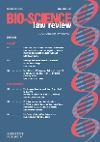Bio-Science Law Review - Volume 17 - Issue 4

COVID-19: THE CASE FOR SUSTAINED COLLABORATIVE INTERNATIONAL RESEARCH AND REGULATORY EFFORTS
KRISHNA KAKKAIYADI, HANNAH ISHIHARA AND HELEN CLINE
Pinsent Masons LLP
This article discusses the joint efforts by international organisations, governments, regulators and the life sciences industry in addressing the COVID-19 outbreak, and makes the case for such efforts to be sustained in order to tackle future epidemics. We discuss the WHO R&D Blueprint, a global strategy and preparedness plan that was developed during the West Africa Ebola epidemic between 2014 and 2016, and consider whether the Blueprint has acted as an effective and an evolving framework in accelerating R&D to enable a strong public health response for COVID-19. In spite of the strong scientific pipeline of medicinal products engendered by the R&D Blueprint and the accompanying regulatory flexibilities during the COVID-19 outbreak, parties ought to do more during inter-epidemic periods to buttress R&D preparedness and collaboration ahead of the next pandemic.Moreover, there are other systemic challenges to be addressed, all of which strengthen the case for sustained international collaboration.
STRATEGIC USE OF THE ENGLISH JURISDICTION IN UPC PROCEEDINGS
PAUL ENGLAND
Taylor Wessing
This article considers the possible future role of English jurisdiction post-Brexit, once the Unified Patent Court and the Unitary Patent become a reality. The author suggests that the Patents Court and IPEC might have an enhanced strategic role when European and Unitary Patents are enforced and challenged in Europe. First, though, as discussed in several case comments in this issue, the new system has to be compatible with the German Consitution.
REVISITING THE MUTAGENESIS RULING OF THE CJEU (C–528/16) AND ITS IMPACT ON THE EU PLANT BREEDING SECTOR
ÁNGELA MARTÍNEZ LÓPEZ
Euroseeds
By Ruling C–528/16 (‘the mutagenesis ruling’), the Court of Justice of the European Union (CJEU) has taken the view that organisms obtained by any mutagenesis technique are to be regarded as Genetically Modified Organisms, and that only those obtained by conventional mutagenesis techniques and with a long safety record can be exempted from the provisions of Directive 2001/18 (‘the GMO Directive’). This article revisits the reasoning in the mutagenesis ruling in connection with the corresponding Opinion of the Advocate General, whilst exposing the implications of such findings for the EU plant breeding sector. Some preliminary notes about the scientific and legal background to the case are laid out and some considerations as to the way forward are suggested, in light of Council Decision 2019/1904 of 8 November 2019 requesting the Commission to submit a study regarding the status of novel genomic techniques under EU law.
CASE COMMENTS
THE GERMAN CONSTITUTIONAL COURT SAYS ‘NEIN’ TO THE UPC
DR MARTIN GRUND, DR STACEY J. FARMERAND DR LAURA SCHRAML
GRUND Intellectual Property Group, Munich
The German Constitution Court recently upheld a constitutional complaint filed to challenge the ratification of the ‘Agreement on a Unified Patent Court’ (‘UPC’) by the German Parliament. This case highlights the intertwining and complex relationship between EU law and national law, in particular those situations involving a transfer of certain national sovereign powers to the UPC, which will assume status as a supranational judicial body. The authors also offer a perspective on what future efforts might be taken to encourage ratification and thus eventual implementation of the Unitary Patent/UPC, in particular during these times of uncertainly throughout the EU, at least partly caused by the challenges of coping with the COVID-19 pandemic.
IP LITIGATION: ANTI-ANTI-SUIT INJUNCTIONS IN IPCOM VLENOVO: FOCUS ON THE FRENCH CASE
CHARLOTTE LELEU, JEAN-PAUL AMELINE AND BERTRAND LOISEL
Plasseraud IP, Paris
In a judgment dated 3 March 2020, the French Appeal Court confirmed an ‘anti-anti-suit injunction’ granted to the German licensing company IPCom in an IP dispute against the Chinese IT equipment provider Lenovo. The authors give a comparative comment on the reasons of the First Instance and Appeal decisions, the first of their kind in France in IP litigation.
THE TRIALS OF THE UNIFIED PATENT COURT
PAUL ENGLAND AND ANJA LUNZE
Taylor Wessing
In its decision of 13 February 2020 the German Federal Constitutional Court decided that the German law implementing the Unified Patent Court was null and void. Here the authors examine the background to this decision and comments that strong political will on the part of all the EU Member States, and especially Germany, will be needed in order to proceed with the UPC project.
